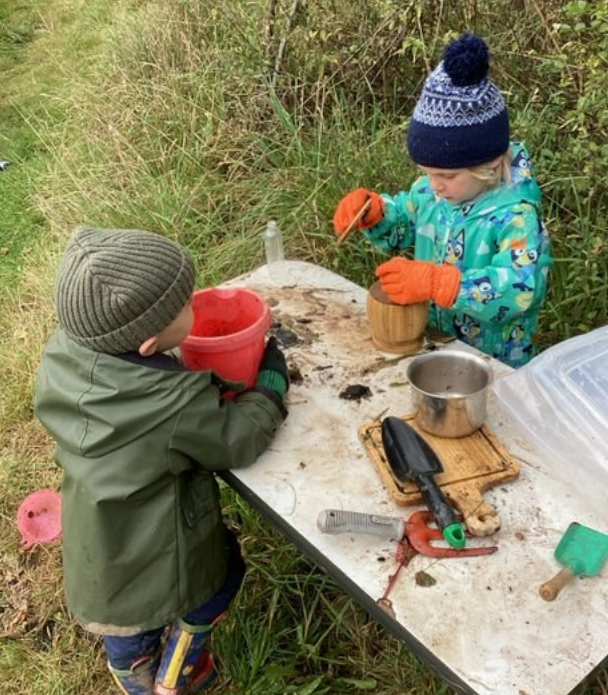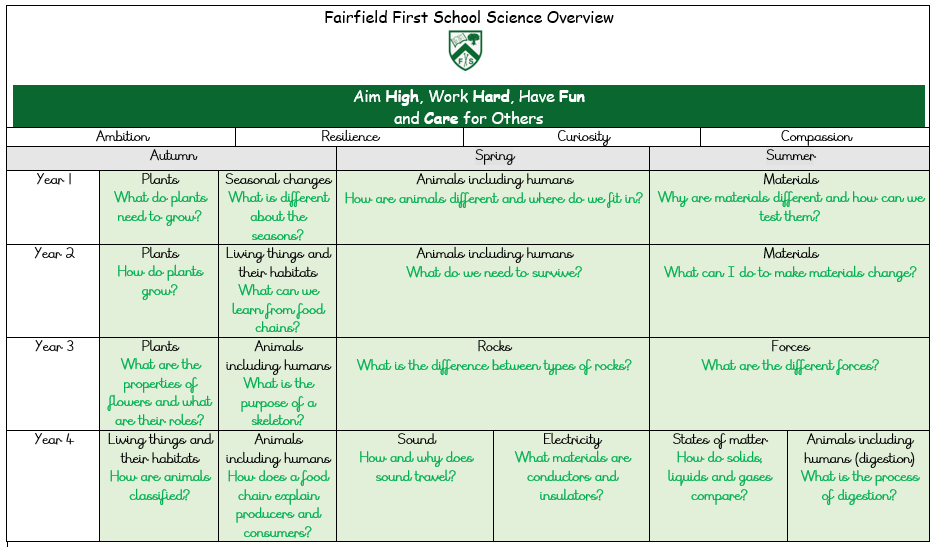Science
Subject lead: Miss Palmer
At Fairfield First School we ensure that Science seeks to develop, in all children, knowledge and understanding of the physical and natural aspects of the world in which they live and to stimulate curiosity in the world around them. Science links to direct practical experience with ideas and involves developing and evaluating explanations through experimental evidence and modelling.

Our Science curriculum is based on our Golden Threads of Science and Working Scientifically. We recognise that pupils should be taught to use practical scientific methods, processes and skills through the teaching of the programme of study content and have made these more explicit for our children. These golden threads have been adopted in our Learning Outside the Classroom lessons, across the school, to further embed these key skills of Science.

Websites to support learning:
BBC Schools Science KS1: https://www.bbc.co.uk/bitesize/subjects/z6svr82
BBC School Science KS2: https://www.bbc.co.uk/bitesize/subjects/z2pfb9q
NASA Kids' Club: https://www.nasa.gov/kidsclub/index.html
Brain POP Science: https://www.brainpop.com/science/
Kids Discover: https://online.kidsdiscover.com/
Science Kids: https://www.sciencekids.co.nz/


